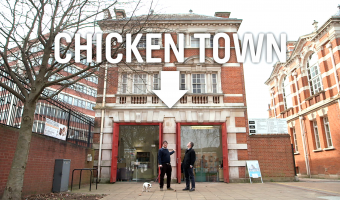
And whilst it is a little quieter for some, we are looking forward to important catering organisations' conferences, with the LACA Main Event taking place as you read this, and the TUCO Summer Conference due to take place very soon.
In Scotland, we are also celebrating the publication of the first ever national Good Food Nation Plan, which has been laid before the Scottish Parliament, with the scrutiny period of the Plan due to run until September.
What does this plan mean for public caterers in Scotland and beyond? Well, first of all there is the practical work that this starts: every local authority and every health board in Scotland will be required to develop, consult upon, publish and deliver its own Good Food Plan.
These must highlight how they will support the development of sustainable food systems shifts over the next five years and beyond - outlining what targets, measures and outcomes they will achieve, how they will measure these, and how policy levers will be used to deliver that change.
Secondly, the plans will be scrutinised by an independent Scottish Food Commission, which will sit independently to Scottish Government to ensure that the plans deliver the outcomes they expect to achieve.
Finally, we can see through the outcomes targets and measures set by the Scottish Government that the public sector is clearly being identified as a key driver for systemic change, and public food is woven throughout the new plan.
Indeed, the Scottish Government has highlighted and articulated what it's vision for the future of public catering should look like in future:
'The food available in public catering settings such as schools, hospitals, prisons and canteens is safe, healthy, fresh, in-season, makes the most of our excellent Scottish produce and is appealing to the varied population of Scotland. Menus promote healthy, sustainable and enjoyable options. Caterers make procurement choices that support a variety of producers, and smaller producers are able to participate in public contracts.'
For those interested, the plan's outcomes are:
• Outcome 1: The food environment in Scotland enables people to eat well. Everyone benefits from reliable and dignified access to safe, nutritious, affordable, enjoyable, sustainable and age-appropriate food.
• Outcome 2: Scotland’s food system is sustainable and contributes to a flourishing natural environment on our land and in our waters. It supports our Net Zero and climate adaptation ambitions, and plays an important role in maintaining and improving animal health and welfare and in restoring and regenerating biodiversity.
• Outcome 3: Scotland’s food environment and wider food system enables and promotes a physically and mentally healthy population. This leads to the prevention of, and a reduction in, diet-related conditions.
• Outcome 4: Our food and drink sector is prosperous, diverse, innovative, and vital to national and local economic and social wellbeing. It is key to making Scotland ‘food secure’ and ‘food resilient’, and creates and sustains jobs and businesses underpinned by fair work standards throughout food supply chains.
• Outcome 5: People and communities are empowered to participate in, and shape, their food system. Scotland has a thriving food culture with a population who are educated about good and sustainable food.
• Outcome 6: Decisions we make in Scotland contribute positively to local and global food systems transformation. Scotland actively engages in learning and exchanging knowledge and best practice internationally.
Scotland is not alone on its journey to sustainable food systems change. We see in Wales the political and legislative commitment to deliver the Well-being of Future Generations Act, with its seven well-being goals, overseen by a commission to deliver a similar level of independent scrutiny.
And in England, we know that work is underway to develop a future Food Strategy, the latest in a series of attempts to deliver systemic change that will, due to the reserved powers held by Government, affect not just people and caterers in England but right across the UK. And, as is often the case, we are assured that public caterers will be consulted in its development. However, despite Defra telling us this will happen, we are still waiting to hear when and how that will be done.
So, whilst the sun might not be shining on me today on the west coast of Scotland, I'm feeling the rays of positivity that come from political commitments to change, where food and public caterers are firmly embedded in the process.
There's much to be done and given that we are spending public money, it's good to see that, in Scotland and Wales at least, the recognition of public caterers in delivering systemic change clearly recognised.








